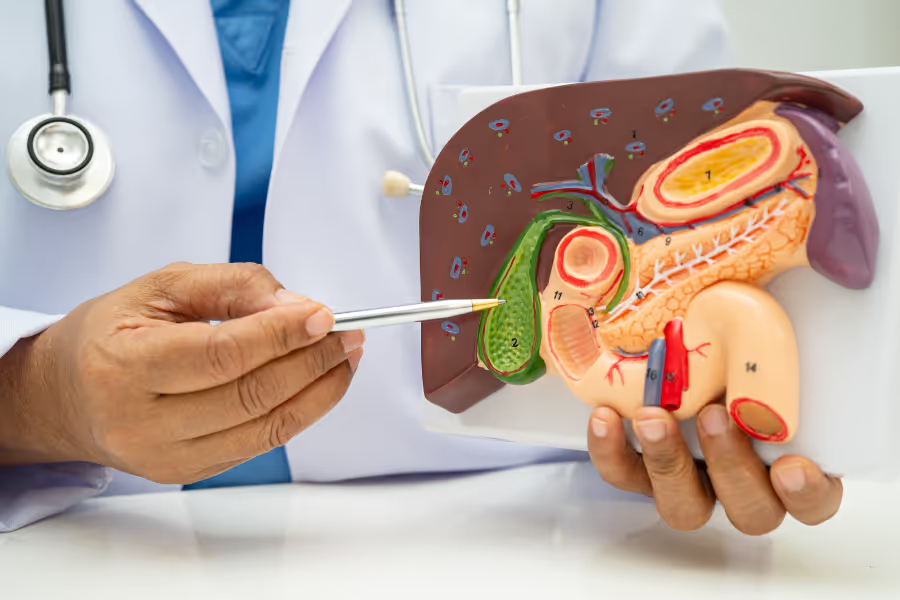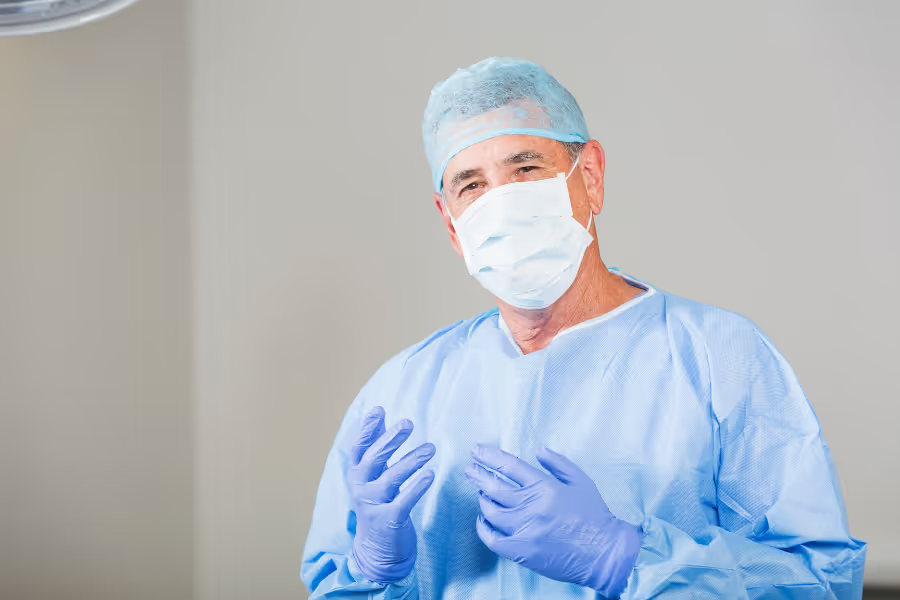
Informational purposes only, not medical or legal advice. Please consult your doctor or surgeon.
Gallbladder removal (cholecystectomy) is surgery to take out your gallbladder, a small sac that stores bile to help digest fat. It’s usually done because of painful gallstones. Most surgeries are laparoscopic: a few tiny cuts, a camera, and slim tools to remove it; you usually go home the same day. You can live normally without a gallbladder—bile flows straight from your liver to your intestine.
The end result is no more gallbladder, which means no more gallstones. In general, most patients adapt to living without, and are able to eat and live normally.
Consults and surgery dates are typically scheduled in weeks—not months—which means faster return to work, sport, and caregiving duties.
Ability to choose a surgeon based on what's important to you (i.e. specific expertise, experience, qualifications, personal connection).
Private pathways typically provide a clear quote and date, so you can arrange time off, caregiver help, and rehab. This certainty can ease anxiety and help families plan for recovery.

The surgery itself usually takes 60-90 minutes, but can take longer depending on complications and extent of the underlying problem.

The recovery process varies patient to patient. Your recovery might look quite different, so please seek further guidance from your surgeon. In general here is what you can expect:
Week 1:
Weeks 2-4:
Weeks 5-12:
Weeks 13-52:
Private clinics in Canada charge between $7,000 - $12,000.
In the United States, the average cost is CA$15,100.
Costs vary so much because of surgery type, location, surgeon experience, facility type, complexity, and included services (some clinics offer all-inclusive, while others charge separately for anesthesia, followup care, etc.).
Most quotes for private gallbladder removal surgery cover:
What’s usually not included:
Choosing your surgeon is one of the benefits of going the private route. Here’s what to consider and the key questions to bring to your gallbladder (cholecystectomy) consultation.
Some 2,500,000 Canadians have gallstones (hardened pieces of bile), and 100,000 discover they have them each year. For many these stones go unnoticed or without pain. But for some, these gallstones will result in complications causing painful attacks (bilary colic), infection/inflammation (acute cholecystitis), blocked bile ducts (risking jaundice or pancreatitis), or polyps in the gallbladder.
In these cases, pain and complications may make surgery advisable, in order to remove the source of the stones and inflammation. You liver will still produce bile, but it will flow directly into the intestine.
Ultimately, your surgeon will advise you whether gallbladder removal makes sense, given your unique circumstances.
No, you do not need a referral for private gallbladder removal in Canada. You can book a consultation directly with a surgeon, and they will review your condition, symptoms, and any previous treatments or diagnostics.
Your surgeon will provide you with guidance on how to prepare. You can expect instructions on eating and drinking, including that you stop eating or drinking the night before surgery. You will likely be asked to stop eating fatty, greasy food and drinking alcohol, while maintaining a balanced diet with lots of fruits and vegetables.
If you smoke, you will be advised to stop to improve healing outcomes. Depending on your weight, you may be advised to diet and exercise to reduce surgical risks and improve healing outcomes.
This is general information—your own risks depend on your health, anatomy, and whether surgery is urgent vs elective. Discuss specifics with your surgeon.
Risks of gallbladder removal (laparoscopic cholecystectomy)
Delaying gallbladder removal presents significant risks.
When watchful waiting can be reasonable
When not to delay
As always—please consult your doctor or surgeon.
If you still have questions, then feel free to contact us directly.

Browse vetted general surgeons across Canada. Compare prices, qualifications, locations.
BROWSE SURGEONS

A highly specialized endocrine surgeon with 7 years of experience, offering expert management of thyroid & parathyroid disorders with a focus on minimally invasive techniques and patient-centred care.